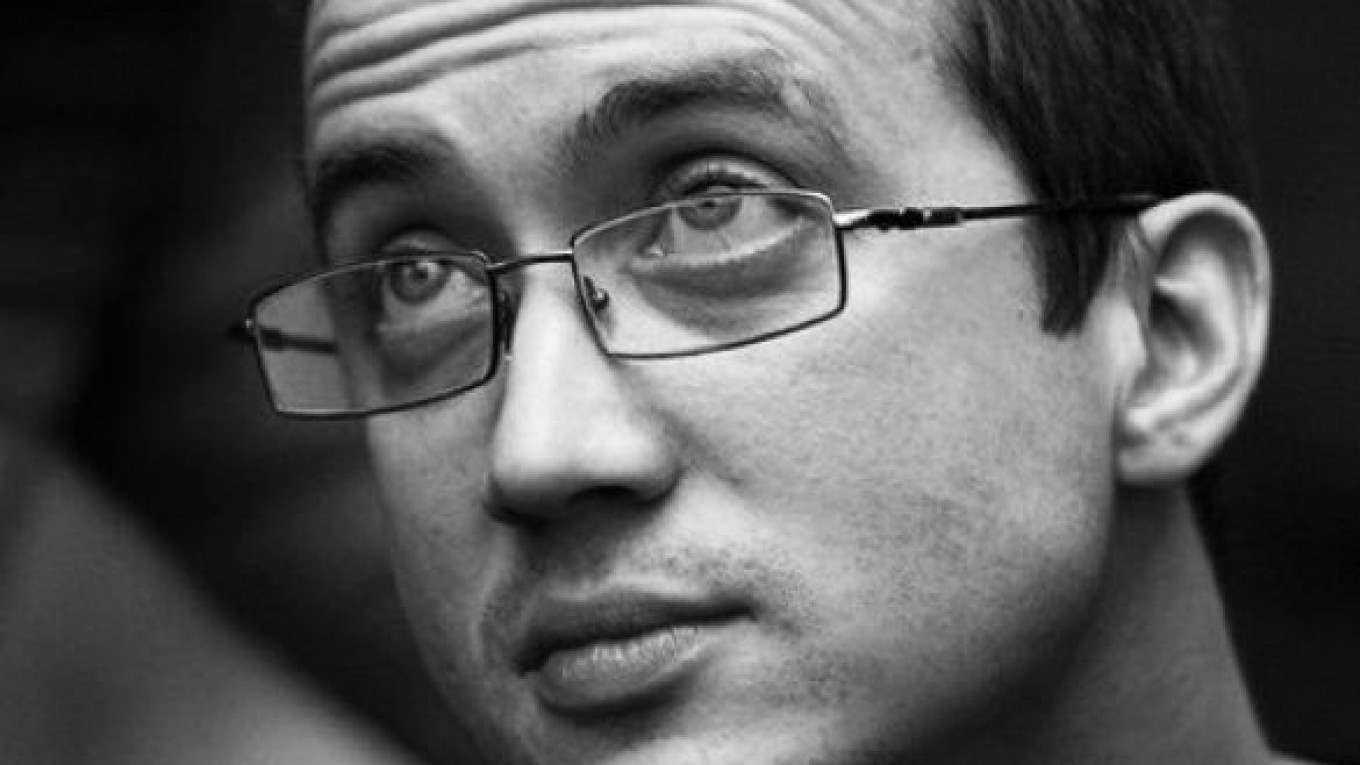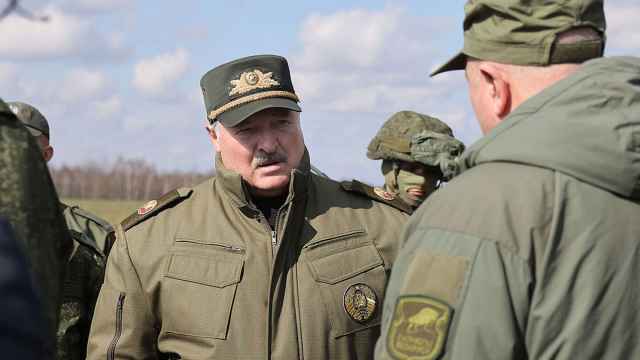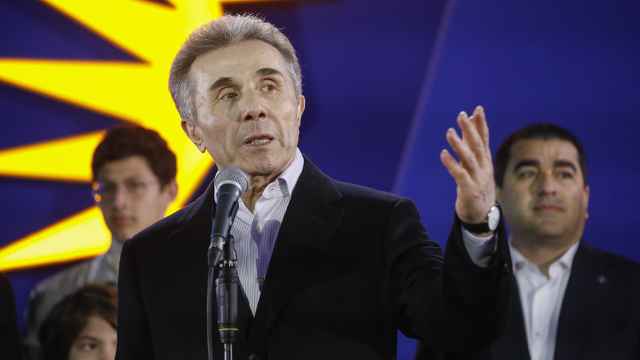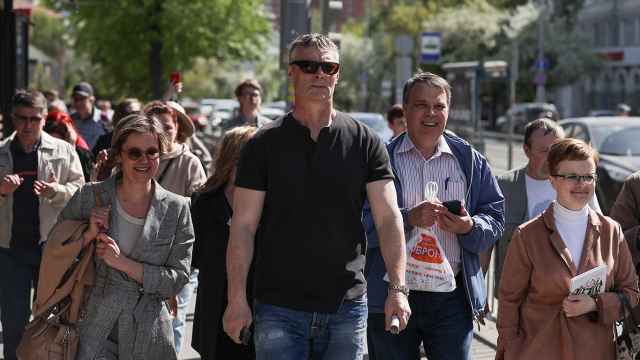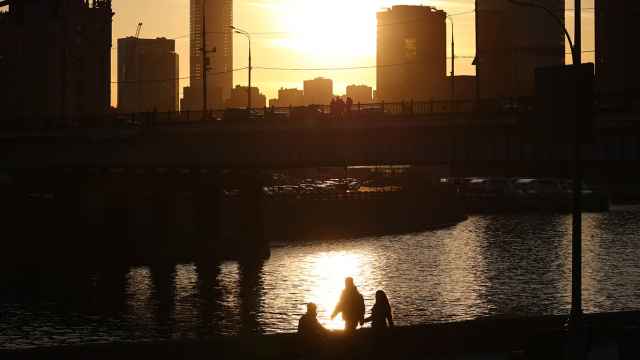Friends and lawyers over the weekend accused the Netherlands of complicity in the suicide of opposition activist Alexander Dolmatov in a Dutch extradition center.
Dolmatov, a member of radical writer Eduard Limonov’s Other Russia movement, was found dead in his cell early Thursday in an extradition center in the port city of Rotterdam. He had fled to the Netherlands last summer to seek political asylum after being sought by police in connection with the violence during a May 6 protest against President Vladimir Putin’s inauguration.
His lawyer Yevgeny Arkhipov accused Dutch authorities of grave rights violations. He explained in a telephone interview Sunday that Dolmatov had been sent to the extradition center even though he had appealed an earlier decision to deny him asylum. Also, he said, authorities had notified nobody about two earlier attempts by his client to kill himself.
“He has become the victim of good relations with Russia,” Arkhipov said.
He added that Dutch authorities had not told him any details about the circumstances of the suicide. National media reports suggested that Dolmatov had cut his wrists.
Arkhipov confirmed that Dolmatov had been denied asylum in mid-December. The complaint was filed together with a Dutch lawyer, Marq Wijngaarden, on Jan. 11. Wijngaarden told Gazeta.ru that the authorities had no right to send him to the extradition center.
Dutch officials insisted that the reason for the suicide was personal. They based their statement on a letter that they say was found with Dolmatov’s body.
“This letter is evidence that he killed himself not because of his asylum case,” said Onno Elderenbosch, deputy head of the Dutch Embassy in Moscow.
Elderenbosch added that the letter was addressed to Dolmatov’s mother and that its contents would not be made public because it was personal. However, national media published the letter over the weekend. The handwritten note to his mother begins with the words, “Mom, I am leaving so I do not return a traitor and disgrace us all.”
Arkhipov said the letter clearly showed that Dolmatov killed himself because of his asylum case. “Obviously, he wrote it under severe pressure,” he said.
He dismissed media reports that suggested Dutch authorities had pressured Dolmatov to disclose military secrets. Dolmatov had worked as a constructor in a rocket factory near Moscow. Dolmatov told The Moscow Times in an interview in July that he had not had access to top-secret information.
Arkhipov did, however, say that Russian special services had pressured his client. “He had told me that he got threatening phone calls from the Federal Security Service,” he said.
Denis Solopov, a friend of Dolmatov who lives in the Netherlands, echoed Arkhipov’s comments. “One hundred percent, the suicide was not a personal thing,” he said by telephone from Amsterdam.
He said he and family members had been unable to contact Dolmatov since December, when he stopped answering his cell phone. “He simply vanished,” Solopov said, suggesting that Dolmatov had suffered from depression.
The Dutch Justice Ministry, which oversees refugee affairs, said in an e-mail Friday that Minister Ivo Opstelten would order an investigation into the circumstances of the death.
Dolmatov said in the interview in July that he feared that he would be punished disproportionately because he had worked in a high-security rocket factory.
A laser engineer who worked in production allocation, Dolmatov said he was fired from the factory in Korolyov in May because of his political activities.
He hoped to follow the example of Solopov, an environmental activist, who received refugee status in the Netherlands in 2011 for being prosecuted for a 2010 attack on an administration building in the Moscow suburb of Khimki.
Solopov told The Moscow Times that he knows at least three other opposition activists who have applied for asylum in the Netherlands after being targeted by investigators for the May 6 protests. Their cases are pending, he said.
Human rights activists say many European countries are afraid to give asylum to Russian opposition activists for fear of jeopardizing relations with Moscow.
They also say the Dutch government might be particularly wary of stirring up trouble during the “Year of Russia in Holland,” which runs throughout 2013.
The Russian Foreign Ministry said in a that it was asking Dutch authorities to "immediately and fully" investigate the case.
Contact the author at n.twickel@imedia.ru
Related articles:
A Message from The Moscow Times:
Dear readers,
We are facing unprecedented challenges. Russia's Prosecutor General's Office has designated The Moscow Times as an "undesirable" organization, criminalizing our work and putting our staff at risk of prosecution. This follows our earlier unjust labeling as a "foreign agent."
These actions are direct attempts to silence independent journalism in Russia. The authorities claim our work "discredits the decisions of the Russian leadership." We see things differently: we strive to provide accurate, unbiased reporting on Russia.
We, the journalists of The Moscow Times, refuse to be silenced. But to continue our work, we need your help.
Your support, no matter how small, makes a world of difference. If you can, please support us monthly starting from just $2. It's quick to set up, and every contribution makes a significant impact.
By supporting The Moscow Times, you're defending open, independent journalism in the face of repression. Thank you for standing with us.
Remind me later.



